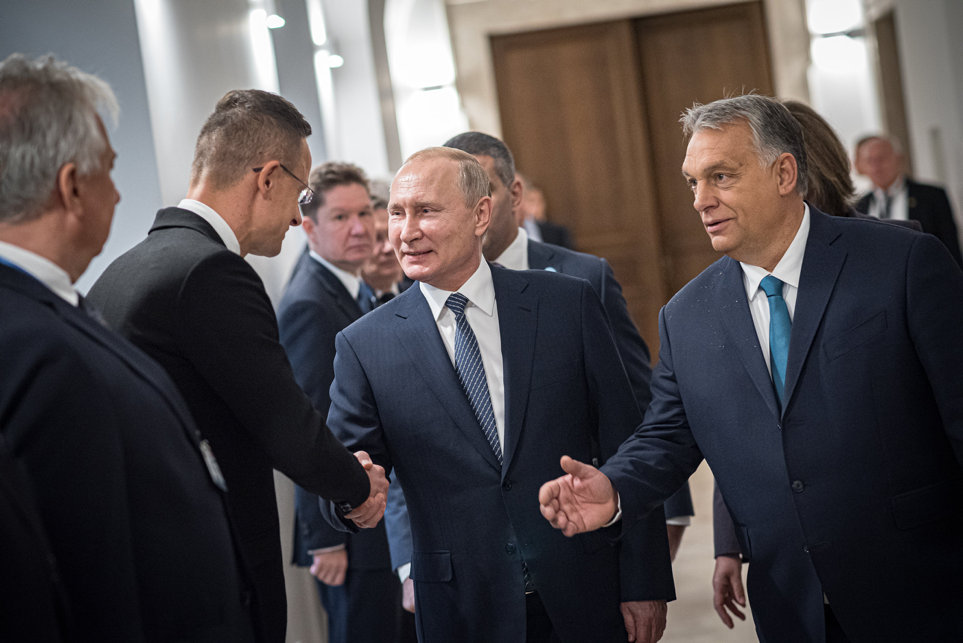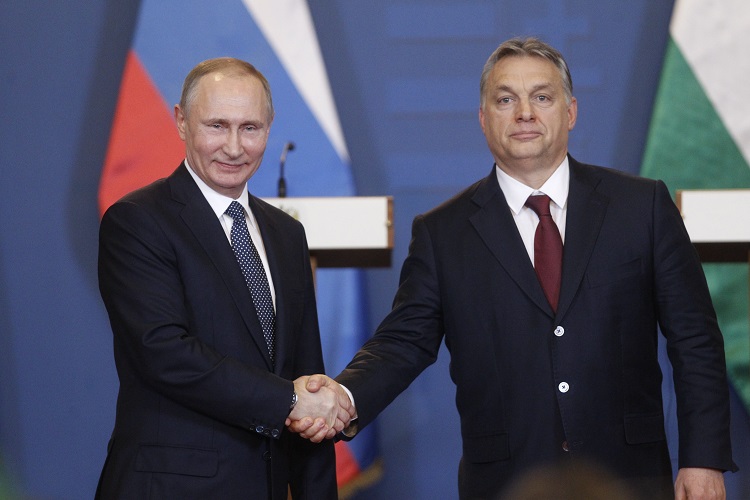
"Viktor Orbán's visit - and the fact that he did not cancel his trip despite the situation - sends a message that NATO and EU member states are not united in rejecting Putin's proposals," the opposition parties said.Continue reading

Ahead of Hungarian Prime Minister Viktor Orbán’s trip to Moscow, the European Parliament’s committees on foreign affairs and also defense stressed that he must present a common European position. Meanwhile, Counselor of the US Department of State Derek Chollet spoke with State Secretary for Security Policy Péter Sztáray on the easing of the Russian-Ukrainian conflict, Hungary’s role in NATO, and military cooperation between the two countries.
On February 1st, Viktor Orbán will travel to Russia to meet Russian President Vladimir Putin. The bilateral talks will focus on the Paks project, gas supplies, and vaccine production, Euronews reports.
Nathalie Loiseau, Chair of the Subcommittee on Security and Defence, said that talks are ongoing with President Emmanuel Macron, for example, due to talk with Putin on Friday. She stressed that the important thing is what message the Hungarian Prime Minister will take to Moscow. And it is important that there is a coordinated common message from the EU:
Putin is trying to divide us; for example, yesterday he met with Italian companies. And he will continue to test us. I sincerely hope that Viktor Orbán is aware of what is at stake and that he sticks to the EU’s message of unity.”
Chair of the European Parliament Foreign Affairs Committee, David McAllister, added that “it is important that the EU message is clear” to Moscow. “The 27 Member States, working with our transatlantic partners, must make it clear that any military attack on Ukraine would have serious consequences and that they support the sovereignty and territorial integrity of all European countries, including Ukraine.”
Orbán will travel to Russia despite the Hungarian opposition parties calling on him to cancel his trip because his “visit – and the fact that he did not cancel his trip despite the situation – sends a message that NATO and EU member states are not united in rejecting Putin’s proposals.”
Meanwhile, Counselor of the United States Department of State, Derek Chollet, posted about his telephone conversation with the State Secretary for Security Policy, Péter Sztáray. He wrote the following:
Called Hungarian State Secretary Péter Sztáray to discuss our diplomatic efforts to de-escalate the tension caused by Russia’s military build-up and continued aggression against Ukraine. We also spoke about Hungary’s contributions to @NATO and our military & security cooperation.
— Derek Chollet (@CounselorDOS) January 26, 2022
Foreign Minister Péter Szijjártó said a few days ago that “no one can ask” us to refrain from intensifying the bilateral relations with Russia, arguing that those who are using war rhetoric against Russians are the same ones who, under the surface, are conducting huge business in and with Russia.
The Foreign Minister stressed that “Hungary’s interest is clearly to maintain a pragmatic, normal relationship with the Russians based on mutual respect.”
Foreign policy must no longer be based on symbols or ideologies, but on national interests.”
Reacting to the opposition’s suggestion that “Putin ordered” him to visit Moscow, PM Orbán said the Hungarian public “very well knows we cannot be ordered anywhere.”
Hungary is a sovereign country; its government and leaders are acting in a sovereign manner.”
In his regular weekly interview, he told Kossuth Radio that he would negotiate at next’s week’s Hungary-Russia summit to increase gas supplies as part of Hungary’s long-term contract with Russia. The Prime Minister, however, added that it was “inevitable” that besides economic matters, European security issues would be on the summit’s agenda. “Hungary’s stance is clear: we have an interest in maintaining peace.”
As Hungary is a member of NATO and the EU, Orbán said he has regularly consulted with the country’s allies “before every such meeting.”
“I have already started the talks, and these will continue in the coming days. I am going to Moscow after having consulted with NATO, the EU, and key politicians of the EU presidency,” he said.
Featured photo illustration by Zsolt Szigetváry/MTI